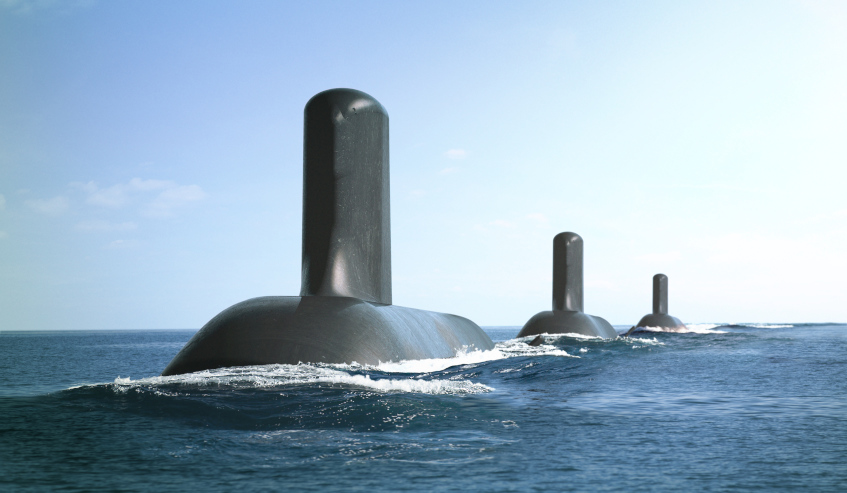Defence has signed a three-year collaboration agreement with universities and industry to develop new acoustic materials that will make Australian submarines harder to detect.
To continue reading the rest of this article, please log in.
Create free account to get unlimited news articles and more!
The $1.5 million Defence Science and Technology (DST) agreement, supported by the Next Generation Technologies Fund (NGTF), will produce new materials to reduce the acoustic signature of submarines without disrupting their operation.
Researchers from DST, the University of Melbourne and RMIT University will join with industry partners QinetiQ and Matrix Composites & Engineering to develop the prototype stealth materials.
Chief Defence Scientist Professor Tanya Monro said the agreement was another step forward in leveraging acoustic science, materials science, engineering and technological innovation across Australia to develop new Defence technology solutions.
"Emerging materials and next generation platforms are vital to creating sustainable sovereign capability for the Navy to support Defence’s current and future needs across the maritime domain," Professor Monro said.
The NGTF, managed by DST, is a government initiative introduced with the Defence Industry Policy Statement in 2016.
Together with the Defence Innovation Hub and the Centre for Defence Industry Capability, these three form the integrated Defence innovation system.
With an investment of $730 million over the decade to June 2026, the NGTF is a forward-looking program focusing on research and development in emerging and future technologies for the “future Defence Force after next”.
The NGTF is focused on the following nine priority areas as determined by the Defence White Paper 2016:
- Integrated intelligence, surveillance and reconnaissance;
- Space capabilities;
- Enhanced human performance;
- Medical countermeasure products;
- Multi-disciplinary material sciences;
- Quantum technologies;
- Trusted autonomous systems;
- Cyber; and
- Advanced sensors, hypersonics and directed energy capabilities.
Professor Monro added, "This innovative research has the potential to enhance underwater vehicle survivability, as well as operational effectiveness."
The research team will be led by University of Melbourne’s Professor Graham Schaffer with Chief Investigators Professor Tuan Ngo and Dr Christian Brandl; RMIT University’s Professor Peter Daivis; and DST’s Dr Ellie Hajizadeh.
Stephen Kuper
Steve has an extensive career across government, defence industry and advocacy, having previously worked for cabinet ministers at both Federal and State levels.

 Login
Login








